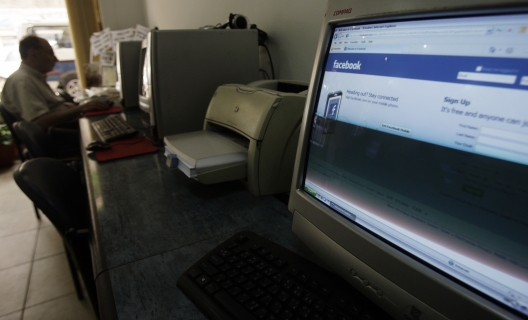 When one thinks of cybercrime, thoughts typically veer toward identity and information theft or hacking and sabotage of websites—but the Egyptian government has taken it a step further. This month, President Abdel Fattah al-Sisi’s cabinet sent a draft sent a cybercrime bill to the State Council for review. The draft law would criminalize everything from insulting citizens or the state on the internet or on social media to crimes already covered by the penal code—which include publications that disturb public order, insults to the president, mocking religion, and disturbing national unity or social harmony.
When one thinks of cybercrime, thoughts typically veer toward identity and information theft or hacking and sabotage of websites—but the Egyptian government has taken it a step further. This month, President Abdel Fattah al-Sisi’s cabinet sent a draft sent a cybercrime bill to the State Council for review. The draft law would criminalize everything from insulting citizens or the state on the internet or on social media to crimes already covered by the penal code—which include publications that disturb public order, insults to the president, mocking religion, and disturbing national unity or social harmony.
Ragab Saad, an Egyptian human rights researcher, in his latest article on EgyptSource examined the history of the Egyptian authorities’ suppression of internet freedom, the institutions set up under the Sisi administration to regulate internet speech, and the implications of the draft cybercrime bill as worded on online civil and political freedom. Saad notes how the successive governments in Egypt have attempted to stem online political speech, even to the extent of shutting down internet traffic at the height of the uprising in January 2011. President Sisi has linked online activism to his fight against terrorism, proposing harsher penalties for anything that courts could interpret as incitement against government officials, institutions, or property. While some online activity could certainly fall under the umbrella of criminal behavior, Saad worries that the government could use ambiguities in the draft law to quash dissent and eliminate political opponents.
The bill imposes a life sentence without the possibility of parole if any of the crimes listed in the law are committed with the purpose of disrupting public order; jeopardizing the safety and security of society; risking the lives and safety of citizens; hindering authorities in performing their duties; blocking provisions of the Constitution, laws and bylaws; harming national unity and social peace; deriding scriptural religions; or undermining any rights and freedoms ensured by the Constitution. The use of these vague expressions have customarily been used by successive Egyptian governments in drafting legislations to undermine rights and freedoms.
Read Ragab Saad’s article here: Egypt’s Draft Cybercrime Law Undermines Freedom of Expression
Image: Photo: A man sits in an internet cafe in Cairo (Reuters/Amr Abdallah Dalsh)
